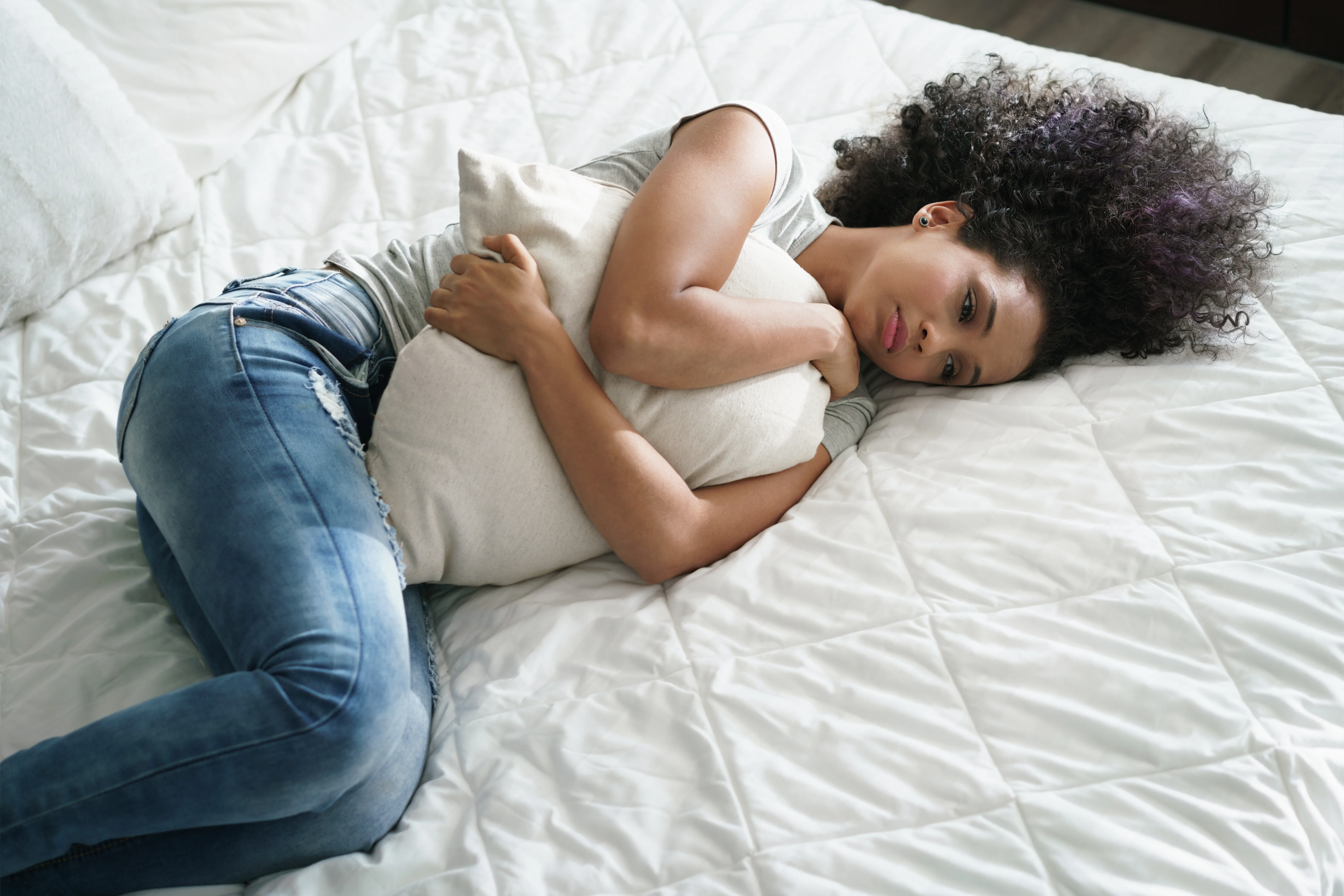

Anxiety Before Period: Cause and Relief
You always want to be prepared for your period, by having the right supplies and time to change them to stay fresh. However, some women also focus on the emotions they experience each month.
This leads to the question: Can PMS cause anxiety?
The hormones related to your cycle do play a role in making you feel more insecure and anxious. However, if you experience excessive worrying, tension and nervousness, you are facing a different level of anxiety.
Premenstrual Syndrome (PMS) brings on physical and psychological symptoms during the luteal phase of your period, i.e. the phase between ovulation and the end of bleeding. Fortunately, there are some ways to relieve PMS anxiety before it builds up to full-scale panic.
Can PMS cause anxiety?
In the run-up to your period, your hormones fluctuate in ways that make you moodier and less able to cope with these changes.
Firstly, oestrogen and progesterone levels drop dramatically once your body realises it isn’t pregnant. This affects the neurotransmitters in your brain, particularly the ones that regulate your mood – serotonin and dopamine – leaving you feeling depressed and/or anxious. Meanwhile, your cortisol levels rise rapidly in the days before your period begins, making you feel more anxious. If you know bad cramps or bloating are on their way, you are probably already on edge, so this just makes it worse. If your sleep is also interrupted by these thoughts, you are even less able to cope with these emotions.
Some women are more sensitive to hormonal changes, which makes them more vulnerable to their ups and down. While it is not clear why this happens, genetics is the main suspect.
Severe anxiety can be a sign of two more serious issues that may require a visit to your doctor.
Premenstrual dysphoric disorder (PMDD) affects 1 in 20 women to the point where their moods and other symptoms impact their daily lives. There is an increased risk if a family member has anxiety or depression.
Watch out for the following symptoms:
- Irritability or anger that undermine your relationships
- Tension, sadness, anxiety, hopelessness or despair
- Inability to focus
- Loss of interest in activities or people
- Mood swings or bouts of crying
- Loss of energy
- Inability to sleep
- Craving food and bingeing
- A sense of loss of control
Premenstrual exacerbation occurs when pre-existing anxiety intensifies in the days leading up to your period. While it is related to the disorder described above, in this case your anxiety is a constant throughout the entire month, but gets worse during PMS.
Other conditions that can intensify during the luteal phase are depression, seizures, substance abuse, eating disorders, schizophrenia and migraines.
PMS anxiety relief
Although genetics and hormones can throw you a curveball, you can manage these symptoms in a variety of ways.
Take charge of your mental health by doing the following things to relieve PMS anxiety:
- Exercise – Getting regular aerobic exercise helps you to cope with the physical symptoms of PMS and puts you in a better state to handle mood swings and anxiety.
- Relax – Try yoga, meditation and massage therapy to unwind.
- Eat ‘good’ carbs – While some diets discourage you from eating carbs, adding whole grains and vegetables to your diet will help you to cope with cravings brought on by your anxiety. Pair them with foods rich in calcium to satisfy other cravings and keep you balanced.
- Sleep – Go to bed and get up at the same time every day, even on weekends. Take time to relax before you go to bed and make sure your bedroom is dark and quiet. You need at least seven hours of sleep per night.
- Take vitamins – Calcium, magnesium and vitamins B and D are your friends. They provide your cells with what they need to regenerate and, in the case of Vitamin D, boost your mood.
- Avoid alcohol, caffeine, fatty foods, salt and sugar. They will either make you feel slightly better or sabotage your healthy habit.
- Drink green tea – Amino acid L-theanine, found in its leaves, relaxes you without making you feel sleepy.
If you feel that you need more support, via medication or therapy, there are a few options to discuss with your doctor:
- Anti-anxiety and anti-depression medications
- Hormonal contraceptives (although some women find this makes their PMS more intense)
- Cognitive behavioural therapy to replace negative thoughts with more positive ones
- Herbal therapies are very safe and have minimal side effects
Disclaimer: This information aims to answer some of your questions or concerns. If you are worried about your health, talk to your family doctor or your gynecologist for professional medical advice.




